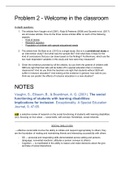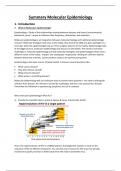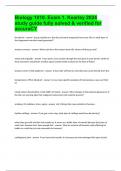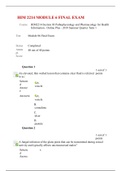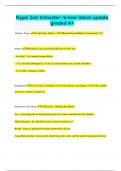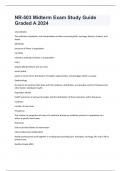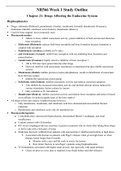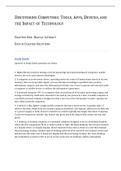Samenvatting
Summary 2.7c Problem 2 - Welcome in the classroom (Inclusion, Special needs, learning disabilities)
This summary is everything you need to know about Problem 1 - Bullying. It includes in just 10 pages all the relevant information from the 4 sources given. Try it out and you won't regret it!
[Meer zien]
